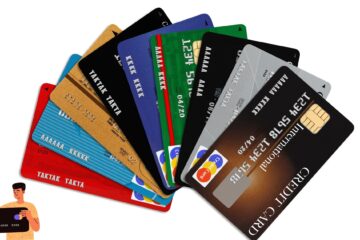Understanding the Basics of Credit Cards
A credit card is a financial tool issued by banks or financial institutions that allows users to borrow funds to make purchases, with the agreement that the borrowed amount will be repaid at a later date. It is essential for beginners to comprehend how credit cards function to leverage their benefits effectively and avoid pitfalls.
At its core, a credit card comes with a credit limit, which is the maximum amount that can be borrowed. Understanding the credit limit is crucial as it influences your spending capacity. Additionally, the Annual Percentage Rate (APR) is another key term. APR represents the annual cost of borrowing, inclusive of interest and fees. Knowing the APR helps in evaluating the cost of carrying a balance on your card.
The billing cycle is the period between two statement dates, typically lasting around 30 days. Transactions made during this period will reflect on your statement, highlighting the amount due. Closely tied to the billing cycle is the grace period, which is the timeframe wherein no interest is charged if the balance is paid in full by the due date. Familiarity with these concepts can aid in better financial planning and effective use of your credit card.
Credit cards come in various forms tailored to serve different needs. Secured credit cards require a cash deposit as collateral, making them ideal for individuals looking to build or rebuild their credit. Unsecured credit cards, on the other hand, do not require collateral and are based on the user’s creditworthiness. Rewards credit cards offer incentives such as cashback, points, or miles for every purchase made, appealing to those who wish to earn while spending. Lastly, student credit cards are designed for young adults with limited credit history, often featuring lower credit limits and benefits suited for students.
Reading the credit card agreement thoroughly before applying is paramount. The agreement contains all the terms and conditions, including fees, interest rates, and rewards program details. This comprehensive understanding is the foundation for making informed decisions and maximizing the benefits of your credit card.
Building and Maintaining a Good Credit Score
A good credit score is a cornerstone of sound financial health. It plays a crucial role in determining your eligibility for loans, the interest rates you receive, and even your prospects for renting an apartment or securing a job. Understanding the intricacies of credit scores and implementing effective strategies to build and maintain a robust credit score can significantly affect your financial opportunities.
One fundamental pillar of a good credit score is paying your bills on time. Payment history is the most significant factor affecting your credit score, accounting for about 35% of the total score. Establishing a habit of timely payments ensures a positive payment history, which is essential for a strong credit profile.
Equally important is managing your credit utilization ratio, which is the percentage of your available credit that you are using. Keeping your credit utilization below 30% is advisable. This demonstrates to lenders that you are responsible with your credit, positively impacting your score.
It’s also vital to avoid too many hard inquiries in a short period. Each hard inquiry, whether for a new credit card or loan, can lower your score by a few points and remains on your credit report for two years. Therefore, being selective about when and where you apply for new credit is essential.
Several other factors collectively influence your credit score: the length of your credit history, the diversity of your credit accounts (e.g., credit cards, mortgages, and car loans), and recent credit inquiries. The longer your credit history and the more varied your credit portfolio, the better your score is likely to be.
Regularly monitoring your credit report is another key practice. This enables you to identify and rectify any errors or signs of fraud promptly. You are entitled to a free credit report from each of the three major credit bureaus annually, and reviewing these reports can help you maintain the accuracy of your credit history.
By implementing these strategies—timely payments, managing credit utilization, avoiding excessive hard inquiries, and regular credit monitoring—you can build and maintain a good credit score that will serve as a valuable asset in your financial life.
Maximizing Credit Card Rewards and Benefits
Choosing the right credit card is crucial for maximizing rewards and benefits. As a beginner, it is essential to select a card that aligns with your spending habits and financial goals. Credit card rewards programs come in various forms, including cashback, points, and travel miles. Each type of program offers unique advantages, so understanding and selecting the one that best suits your lifestyle can greatly enhance your financial benefits.
Cashback credit cards offer a percentage of your purchases back as cash. This type of card is ideal for those who prefer straightforward rewards that can be applied directly to their statement balance or deposited into their bank account. On the other hand, points-based cards allow you to accumulate points that can be redeemed for various goods and services, such as merchandise, gift cards, or even travel. If you are a frequent traveler, a credit card that rewards travel miles can provide substantial savings on flights, hotel stays, and other travel expenses.
To take full advantage of credit card rewards, it is strategic to use your card for routine purchases. Everyday expenses such as groceries, gas, and dining can accumulate significant rewards over time. Additionally, many credit cards offer sign-up bonuses—a large number of points, miles, or cashback—after you spend a certain amount within the first few months. These bonuses can provide an excellent head start in earning rewards.
Introductory 0% APR offers can also be beneficial, particularly if you plan to make a large purchase or need additional time to pay off existing balances without incurring interest charges. Furthermore, some cards provide exclusive access to events, travel perks, and other privileges that can enhance your overall experience as a cardholder.
However, it is important to fully understand the terms and conditions associated with your credit card’s rewards program. Awareness of expiration dates, specific spending categories, and redemption options can help you avoid common pitfalls and ensure that you are making the most out of your rewards. By staying informed and strategic, beginners can effectively maximize the benefits of their credit cards.
“`html
Practicing Responsible Credit Card Management
Proper credit card management is pivotal in preventing financial pitfalls and maintaining healthy credit. One of the cardinal rules is to avoid accumulating unnecessary debt by embracing responsible credit card use. By setting a comprehensive budget, you can track your spending and ensure it aligns with your financial goals. Allocate specific amounts towards different categories, such as groceries, entertainment, or emergency funds, to avoid overspending.
Paying more than the minimum payment due on your credit card is another crucial strategy. Minimum payments may seem manageable, but they often lead to prolonged debt and increased interest over time. Prioritize paying off high-interest debt first to minimize additional charges and bring down your overall debt more quickly. It’s essential to develop a habit of paying your credit card bill in full each month, if possible, to avoid interest accumulation entirely.
Failure to manage credit cards responsibly can result in severe consequences. Mismanagement may negatively impact your credit score, making it challenging to secure loans or favorable interest rates in the future. Accumulated interest can significantly increase the total amount owed, leading to unmanageable debt. In addition, missing payment deadlines incurs late fees, further complicating your financial situation. Setting up alerts for due dates can prevent missed payments by reminding you when bills are approaching.
Maintaining a disciplined approach to spending is a linchpin in effective credit card management. Avoid impulsive purchases and evaluate whether items are needs or wants before buying. By doing so, you can prevent unnecessary debt accumulation and keep your finances on track. In the event that debt becomes overwhelming, seeking professional financial advice can provide tailored strategies to manage and rectify the situation. Financial advisors can offer valuable insights on consolidating debt, refinancing options, and other methods to regain control of your financial health.
“`



